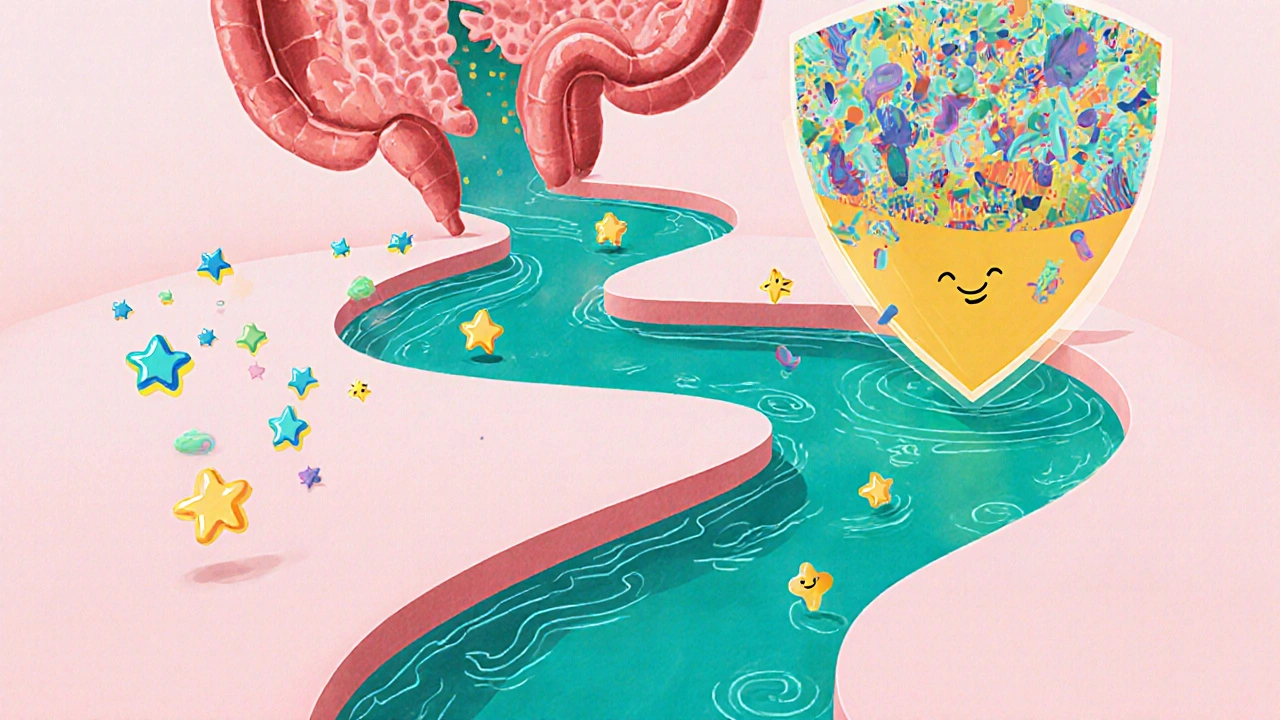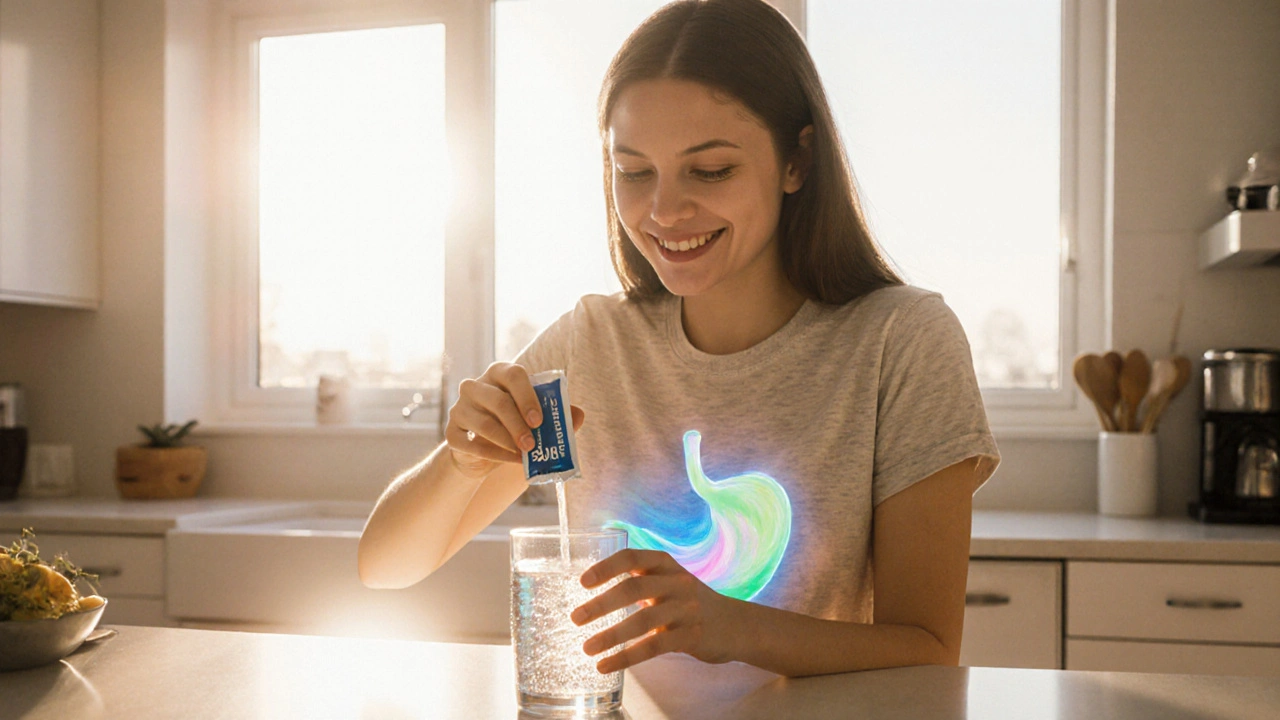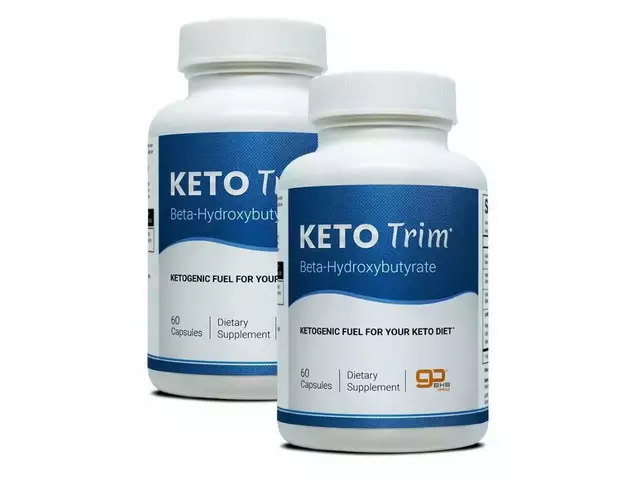Ever wonder why a diet soda leaves you with a rumbling belly? The culprit is often artificial sweeteners. While they promise zero calories and sweet cravings satisfied, their impact on your gut can be anything but sweet. Below you’ll learn what these sweeteners are, how they interact with your digestive system, which types are more likely to trigger discomfort, and practical steps to keep your tummy feeling calm.
TL;DR
- Artificial sweeteners are sugar substitutes that can alter gut bacteria and ferment in the colon.
- Aspartame, sucralose, stevia, and sugar alcohols each have distinct digestion profiles.
- Common symptoms include bloating, gas, cramps, and occasional diarrhea.
- People with IBS, low lactase, or sensitive microbiomes are most at risk.
- Managing intake, staying hydrated, and choosing low‑fermentable options can ease tummy aches.
What Exactly Are Artificial Sweeteners?
Artificial sweeteners are synthetic or highly refined sugar substitutes that provide sweetness without the calories of regular sugar. They work by binding to the same taste receptors on the tongue that glucose does, but most are not fully metabolized by the body, so they pass through the gastrointestinal system largely unchanged.
How the Gut Reacts: The Role of the gut microbiome
The gut microbiome - trillions of bacteria, fungi, and viruses living in your intestines - plays a central part in breaking down foods that your own enzymes can’t handle. When you ingest artificial sweeteners, many of them reach the colon intact, where they become food for certain bacterial strains. Studies from 2023 show that regular consumption of sucralose can reduce beneficial Bifidobacteria by up to 15% while promoting growth of potentially gas‑producing species.
These microbial shifts can lead to increased fermentation, producing gases like hydrogen and methane that cause bloating and cramping. Over time, an imbalanced microbiome may also affect gut‑brain signaling, making you feel nauseous or experiencing irregular bowel movements.
Common Sweeteners and Their Digestive Footprint
| Sweetener | Sweetness (vs. sucrose) | Calories (per gram) | Typical Uses | Known Digestive Effects |
|---|---|---|---|---|
| Aspartame | 200‑250× | ~4kcal (metabolized) | Diet sodas, tabletop sweeteners | May cause mild bloating; breaks down into phenylalanine, problematic for phenylketonuria (PKU) patients. |
| Sucralose | 600× | 0kcal | Baking, beverages, processed foods | Can disrupt gut bacteria, leading to gas and occasional diarrhea. |
| Stevia | 200‑300× | 0kcal | Natural‑sweetener blends, tea, coffee | Generally well‑tolerated; high doses may cause a bitter aftertaste and mild stomach upset. |
| Sugar alcohols (e.g., erythritol, xylitol) | 0.5‑1× | 0‑2kcal | Chewing gum, low‑calorie desserts | Often cause osmotic diarrhea when consumed >50g/day; high‑fermentable sugars lead to bloating. |
Notice how the sugar‑alcohol row flags the strongest laxative effect. That’s because these compounds are only partially absorbed in the small intestine; the remainder enters the colon where bacteria ferment them, pulling water into the lumen and creating loose stools.

Who’s Most Likely to Feel the Burn?
Not everyone gets a gut‑ache from a sip of diet cola. Certain conditions make you more sensitive:
- Irritable Bowel Syndrome (IBS): IBS patients already have heightened gut sensitivity; artificial sweeteners can act as triggers.
- Low lactase activity: Though lactase isn’t directly involved with sweeteners, many low‑lactose products also contain sugar alcohols, compounding issues.
- Altered microbiome: Recent antibiotic use or a diet low in fiber can leave your gut flora less resilient, making fermentation spikes more noticeable.
- Phenylketonuria (PKU): Aspartame breaks down into phenylalanine, which PKU patients must avoid.
If you fall into one of these groups, watch the ingredient list carefully and consider limiting intake.
Managing Tummy Aches: Practical Tips
- Read labels: Look for “sucralose,” “aspartame,” “neotame,” “acesulfame‑K,” or “sugar alcohols.” If you’re sensitive, choose products with “stevia” or “monk fruit” (both low‑fermentable).
- Mind portion size: Even well‑tolerated sweeteners can cause issues in large doses. Keep daily intake below the FDA’s acceptable daily intake (ADI); for sucralose, that’s about 5mg per kg body weight.
- Stay hydrated: Fluids help move fermentable sugars through the colon, reducing gas buildup.
- Boost fiber: Soluble fiber (e.g., psyllium) can absorb excess water and soften stool, counteracting osmotic effects of sugar alcohols.
- Try a low‑FODMAP version: Some diet plans recommend eliminating high‑FODMAP sweeteners like sorbitol and mannitol to see if symptoms improve.
When symptoms subside after these adjustments, you’ve likely pinpointed the offending sweetener.
When to Seek Professional Help
If you experience any of the following, schedule a visit with a gastroenterologist or dietitian:
- Persistent diarrhea lasting more than three days.
- Severe abdominal pain that wakes you from sleep.
- Unexplained weight loss or signs of malabsorption.
- Signs of allergic reaction - itching, hives, or swelling.
These could indicate an underlying condition that needs targeted treatment rather than simple dietary tweaks.
Bottom Line: Sweetness Without the Guilt?
Artificial sweeteners can be a handy tool for cutting calories, but they’re not a free pass for unlimited consumption. Understanding the gut’s response-especially the role of the gastrointestinal tract and its resident bloating‑producing bacteria-helps you choose the right option for your body. Opt for low‑fermentable natural alternatives like stevia, watch your portions, and keep an eye on how your belly feels after each sweet sip.

Frequently Asked Questions
Can artificial sweeteners cause weight gain?
Most research shows they don’t add calories, but some studies suggest they may affect appetite hormones and gut bacteria, potentially leading to modest weight gain in a subset of people. The effect varies by individual and the type of sweetener.
Is sucralose safe for diabetics?
Yes, sucralose doesn’t raise blood glucose, making it a popular choice for diabetics. However, monitor gut symptoms, as some users report increased bloating.
Why do some people feel tired after drinking diet soda?
The caffeine in soda is a common cause, but rapid blood sugar fluctuations from the sweet taste without real sugar can trigger a mild insulin response, leading to a temporary energy dip for sensitive individuals.
Are sugar alcohols the same as artificial sweeteners?
Sugar alcohols are technically a class of low‑calorie sweeteners but differ chemically from high‑intensity sweeteners like aspartame. They often cause more digestive upset due to their osmotic effect.
Can I use stevia while pregnant?
Stevia is generally recognized as safe (GRAS) for pregnant women in typical food amounts. Large supplemental doses haven’t been studied extensively, so moderation is key.





Artificial sweeteners can indeed influence gut microbiota, and the evidence presented aligns with current research. The reduction in Bifidobacteria you mention is noteworthy, especially for individuals with IBS. Moderation and label scrutiny remain prudent strategies. Overall, a clear, concise summary.
While the article emphasizes potential drawbacks, it overlooks that many consumers tolerate these compounds without issue. The blanket warning may discourage beneficial low‑calorie options for diabetics. A more nuanced perspective would acknowledge individual variability.
When we talk about artificial sweeteners, we must first recognize that the gut is a highly adaptive ecosystem, not a static container that merely reacts to whatever we feed it. The microbial community consists of hundreds of species that compete for substrates, and even minor changes in available nutrients can shift the balance in unpredictable ways. In the case of sucralose, several studies have documented a modest decline in Bifidobacterium populations, which are known for their anti‑inflammatory properties and ability to ferment fibers into short‑chain fatty acids. Those short‑chain fatty acids, such as butyrate, play a crucial role in maintaining the integrity of the intestinal lining and signaling satiety pathways. When the production of butyrate drops, you may experience increased permeability, sometimes referred to as “leaky gut,” which can exacerbate bloating and discomfort. Moreover, the increase in gas‑producing bacteria like certain Clostridia species can lead to heightened hydrogen and methane production, manifesting as flatulence and abdominal distension. The osmotic effect of sugar alcohols, particularly erythritol and xylitol, adds another layer of complexity because they draw water into the colon, accelerating transit and potentially causing loose stools. Some individuals report that a modest amount-say, ten grams-of these polyols passes through without incident, while a slightly larger dose triggers noticeable diarrhea. This dose‑response relationship underscores the importance of personalization; what is tolerable for one person may be a probiotic nightmare for another. Existing research also suggests that chronic exposure to high‑intensity sweeteners may desensitize sweet taste receptors, subtly influencing appetite regulation and leading to compensatory overeating of other calorie‑dense foods. This indirect effect, combined with the direct microbial shifts, creates a feedback loop that can undermine weight‑loss goals. Importantly, not all sweeteners are created equal: stevia, for example, contains glycosides that are largely metabolized before reaching the colon, resulting in minimal fermentative activity. Nevertheless, even stevia can cause mild gastrointestinal upset if consumed in excessive amounts, especially when combined with other fermentable fibers. For patients with irritable bowel syndrome, the low‑FODMAP diet recommends a trial elimination of high‑fermentable sweeteners to identify triggers, a strategy that aligns well with the article’s practical tips. Ultimately, the take‑home message is that awareness of individual tolerance, careful label reading, and incremental experimentation are the keys to avoiding the dreaded “tummy ache” that many associate with diet sodas. By respecting the nuanced interplay between sweeteners and gut microbiota, we empower ourselves to make informed dietary choices that support both metabolic health and digestive comfort.
Your points about hydration and fiber are spot on; adding a bit of psyllium can indeed soothe the colon after a sugar‑alcohol binge. I’d also suggest rotating sweeteners rather than sticking to a single type, which can give the microbiome a chance to recover.
Patriotic Americans should demand foods that respect our bodies, not cheap chemical afterbites that sabotage our digestion. The glorification of artificial sweeteners is a corporate ploy, and we must expose the truth.
Honestly, the government is hiding data about how these sweeteners rewire our gut to make us dependent on processed foods; it's a classic example of the elite controlling our health for profit. Wake up!
Oh great, another reason to avoid diet soda-because apparently the sweeteners are out to get our guts. Guess we’ll all be back to sugary drinks then, right?
The author fails to acknowledge that the industry has funded many of the studies downplaying the adverse effects, leading to a biased consensus. A deeper dive into independent research reveals consistent patterns of microbiome disruption, especially with chronic sucralose exposure, which aligns with the physiological mechanisms I’ve outlined in my own publications. Moreover, the exclusion of long‑term epidemiological data leaves readers with an incomplete picture, ignoring the correlation between high sweetener consumption and increased incidence of metabolic syndrome. It is essential to contextualize these findings within the broader framework of food additives, regulatory capture, and the hidden costs imposed on public health. Only then can we develop truly evidence‑based guidelines that protect consumers from insidious dietary threats.
Just tried swapping out my regular soda for a stevia‑sweetened version and noticed less bloating after a week, so maybe not all sweeteners are equal.
its good to see real life examples like that its helpful for anyone trying to figure out what works for them
Thanks for the thorough breakdown! I feel more confident experimenting with low‑FODMAP sweeteners and will keep a food journal to track any changes.
I appreciate the balanced tone; adding a note about slowly re‑introducing sweeteners after a trial period could help readers avoid panic and find a sustainable middle ground.
One might argue that the pursuit of sweetness is a philosophical quest for pleasure, yet the mechanistic reality of gut microbiota disruption cannot be ignored, for it reveals the paradox of seeking zero‑calorie joy while compromising microbial harmony.
sarcastic but true lol who needs a happy gut when you can have a chemically induced sugar high you cant even taste
From a cultural perspective, many traditional diets have avoided intense sweeteners altogether, favoring natural flavors like fruit, which support a diverse microbiome and reinforce community food practices.
Can you believe I was told diet soda is healthy? My stomach hasn't been the same!
Clearly the article cherry‑picks data, ignoring the substantial body of peer‑reviewed work that documents gut dysbiosis from chronic sweetener intake, and that's why we need stricter regulations ASAP.